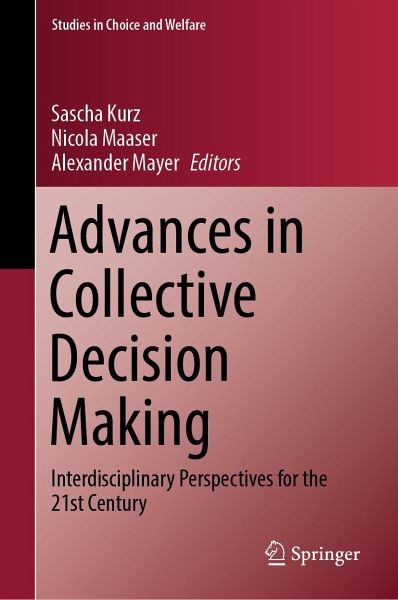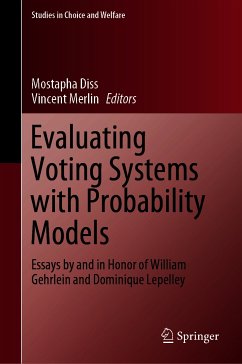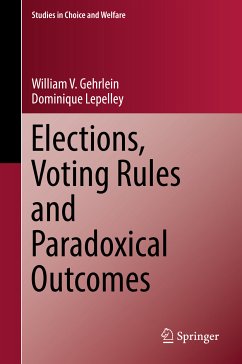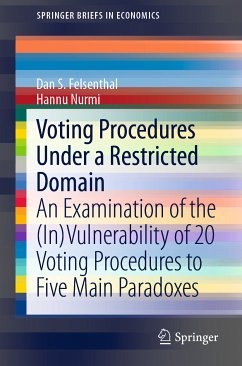
Advances in Collective Decision Making (eBook, PDF)
Interdisciplinary Perspectives for the 21st Century
Redaktion: Kurz, Sascha; Mayer, Alexander; Maaser, Nicola
Versandkostenfrei!
Sofort per Download lieferbar
136,95 €
inkl. MwSt.
Weitere Ausgaben:

PAYBACK Punkte
68 °P sammeln!
This book presents research on recent developments in collective decision-making. With contributions from leading scholars from a variety of disciplines, it provides an up-to-date overview of applications in social choice theory, welfare economics, and industrial organization. The contributions address, amongst others, topics such as measuring power, the manipulability of collective decisions, and experimental approaches. Applications range from analysis of the complicated institutional rules of the European Union to responsibility-based allocation of cartel damages or the design of webpage ra...
This book presents research on recent developments in collective decision-making. With contributions from leading scholars from a variety of disciplines, it provides an up-to-date overview of applications in social choice theory, welfare economics, and industrial organization. The contributions address, amongst others, topics such as measuring power, the manipulability of collective decisions, and experimental approaches. Applications range from analysis of the complicated institutional rules of the European Union to responsibility-based allocation of cartel damages or the design of webpage rankings. With its interdisciplinary focus, the book seeks to bridge the gap between different disciplinary approaches by pointing to open questions that can only be resolved through collaborative efforts.
Dieser Download kann aus rechtlichen Gründen nur mit Rechnungsadresse in A, B, BG, CY, CZ, D, DK, EW, E, FIN, F, GR, HR, H, IRL, I, LT, L, LR, M, NL, PL, P, R, S, SLO, SK ausgeliefert werden.












